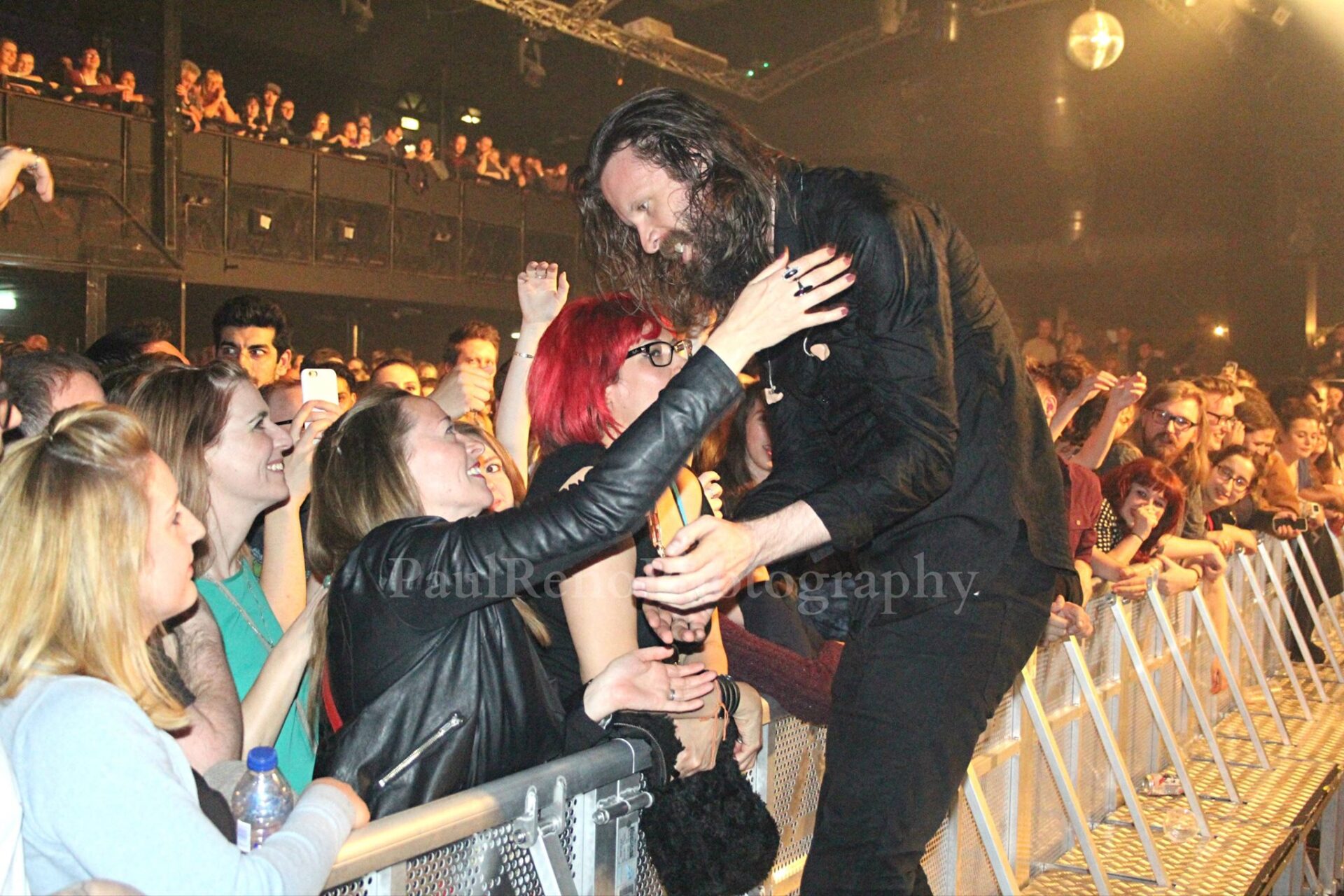Musicians are generally an egalitarian lot; they don’t care who’s playing the music they’re just glad someone’s playing. They are more interested in the ‘what’ than the ‘who’. In that sense, the relationship between men and women in the industry itself is hopefully mutually supportive. However, the relationship between audiences and musicians is a far more divisive one.
It is bound to be complex and unequal. Founded on fostering hysteria between male ‘pop stars’ and female fans, performers were originally encouraged to deny their marital status or their sexuality. And that encompasses everyone from John Lennon to Barry Manilow. Fancying a male pop/rock star was a rite of passage for a girl – Nick Rhodes in full make-up was the one for me. These crushes are meant to be harmless, though. Note the lack of sexual charisma in any boy band aimed at teenagers. It’s the minute they grow beards and start dating models the danger starts.
For most bands, though, it is the creation of music and being in a gang that matters. There is definitely a bonding thing that goes on in bands. It’s as if they become a family. The difference with it is that they have chosen each other, probably through shared values and a clear sense of what they want to represent.
As Huw Edwards of our ‘Track of the Day’ band Koyo says, “In my experience, sexism is definitely most prominent in ‘lad’ culture. The gigs we go to/play tend to distance themselves from that, intentionally and unintentionally – anyone with a small enough brain to think it’s okay to be sexist is probably not open-minded enough to appreciate an eight and a half minute song with a saxophone solo in it…” So, the music defines the attitude of the band and, in turn, their relationship with the audience.
It’s an opinion reinforced by Tom Hickox, one of the great things about musicians is how open and inclusive they are – music is the great leveller regardless of gender, colour, sexuality, whatever. We are all united in music. “…one of the great things about musicians is how open and inclusive they are – music is the great leveller regardless of gender, colour, sexuality, whatever.”
Of course, there will always be people in bands not just for the music alone, but given the time and effort required to write and perform songs it seems like a hard way to attract someone. Nevertheless, “I can see a lot of bands clearly have ulterior motives. But is there anything wrong with that?” says Huw. “I think the problem lies with bands who use the ‘we’re all about the music’ card as a pose, when it’s so obviously not. If you’re gonna do something, do it unapologetically!” Because it is true that erstwhile unattractive men can acquire new status and ‘pulling power’ merely by strapping on a guitar or standing behind a mike stand. It’s all a bit of a mystery, really.
The sexual aspect of music is an important one. And as audiences and bands get older the lines between sexual appeal and sexual exploitation become more difficult. Recent times have seen the rise of the self-proclaimed ‘fangirl’. The role comes with merchandise of its own, ‘I’m a fangirl, we don’t do calm’, a slogan than can be found on anything from t-shirts to posters to jewellery. It’s a worrying promotion of the idea that the best thing for a teenage girl’s self-affirmation is the romantic recognition of a man. There is no male equivalent.
One of the main problems with ‘fangirling’ is how easily it can lead to the emotional or sexual mistreatment of the young. It’s a cliché to say it, but most fangirls are impressionable young women who will be happy for whatever crumb of attention might be thrown their way. There’s no doubt that being a young man and dealing with that kind of adoration must be difficult.
Anna from online campaign group Girls Against said: “It’s more than evident that many in the past (and currently) abuse and take advantage of the power they have and get away with it simply because they’re male and in a position of power…consequences often are not in place for abusers within the music industry and this is something we try to combat. I personally get angry when male musicians downplay their fanbase for being female, dismissing them as naive because they’re young and female, thus giving them the power to do what they want to them. However, many male bands address the issues faced by female audience members and try their best to combat it; many of the male bands who support us such as Slaves, Circa Waves and Peace actively try to ensure the safety of girls in their crowds and openly discuss their support of feminism and women in music.”
And that’s a stance that we definitely saw in the nineties when bands like Senseless Things made a concerted effort to represent women beyond a narrow vision of sexiness and attractiveness. Their repeated use of female characters from Jamie Hewlett cartoons demanded nothing more than your full respect. It’s an attitude they maintained at their reunion gig at Shepherd’s Bush Empire in March when both support bands were entirely female and, girl, did The Tuts and Skinny Girl Diet kick it.
It works both ways. Women are trying to impress men all the time as well. Mark Keds has plenty of tales to tell about being pursued by women merely to become another ‘notch in the bedpost’. Now with Deadcuts, he also thinks the behaviour of female audiences has changed and puts it largely down to the nineties being ‘more PC times.’ It takes us back to the whole argument about whether gender roles in life and music have become more limiting. Belonging to that older generation means we have the advantage of the confidence and freedom given to us in that era. Still, “We hear the voices of white men in music and the voices of black men. It’s time to hear the voices of women.”
As far as Mark is concerned, “You can never have too many women in music and audiences. We need more of them.” All of which we will consider next…




